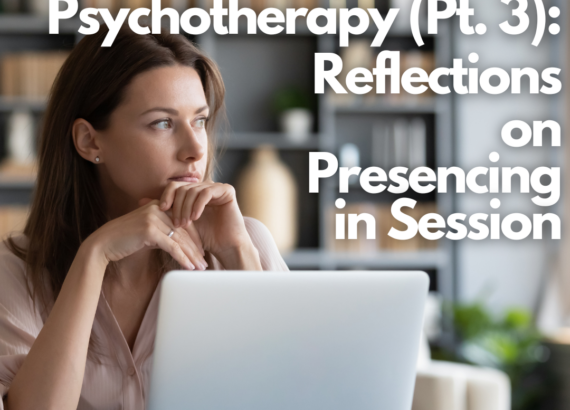Memory Reconsolidation: Understood & Misunderstood, 2 (21)

On this episode of The Evidence Based Therapist, Bridger and Caleb continue to discuss the understood and misunderstood within memory reconsolidation.
Season 2 Articles
Misconception 4: Anxiety, phobias, and PTSD are the symptoms that memory reconsolidation could help to dispel in psychotherapy, but more research must be done before it is clear how reconsolidation can be utilized clinically.
- Speaks to the desire of clinicians to alleviate client suffering
- When working to alleviate anxiety, phobias, or PTSD, we’re attacking fear.
- Fear is one of those most inherently inhibitory experiences, behaviorally and affectively.
- Secondary learning processes can branch out, and from a system of fear, can create templates for seeking certain rewards from a place of fear avoidance.
- So to chase these behaviors, we’ll only find external or imagined sources of fear.
- These are not the beginning of this emotional learning or its associated behavioral activation sequence.
- Rather, they are secondary processes
- If true character change is happening, then it is the result of the reconsolidation process.
Misconception 5: Emotional arousal is inherently necessary for inducing the reconsolidation process.
- Simply because someone is emotionally expressive doesn’t mean memory reconsolidation is happening
- Only what’s approachable through the reconsolidated process is inherently emotional.
- What if I don’t perceive my initial learnings as emotional? What if they weren’t?
- By accessing the story that reinforces the state that is perpetually augmenting itself over and over, we can change the state.
- Because story follows state follows the story.
- To be clear, we aren’t working in a top-down way.
- Consider the dismissive client who doesn’t appear to be emotional.
- If you hold this misconception, you’ll beat your head against the wall trying to elicit some type of emotional reaction.
- But remember, to experience a distorted affect is overwhelming.
- So, with the intention of reconsolidation, to try and elicit an emotional reaction is triggering the very defense mechanism that you’re trying to change.
- Leaving you unable to reconsolidate the network.
- After you go through memory reconsolidation with an implicit emotional learning network, an opening of an affective experience occurs.
- Then, emotions can be experienced in ways that were previously inhibited or fired in a distorted way.
- This happens after reconsolidation because the brain is reconsolidating the inhibitory or distorted networks, not the affect.
Misconception 6: What is erased in therapy is the negative emotion that became associated with certain event memories, and this negative emotion is erased by inducing positive emotional responses to replace it.
- Emotions are not good or bad, they just are.
- Therapists may want to rush in and target shame
- But shame is an emergent process from what actually happened (the target learning).
- It’s impossible to erase “negative” emotions
- Reconsolidation is changing an old model with a new model
- And that has a phenomenological experience in therapy.
- Emotions then change the derivative effect of the models, rules, and meanings that are attributed to the sensory experience.
- Caleb gives an example (59:49)
Practical Meaning
- None of this is simple
- It helps to answer questions like ‘what is that we really need to shift our attention to? What is your (the client) system trying to be aware of?’
- Caleb’s understanding (01:02:26)
- Bridger’s understanding (01:06:27)
Did you know? After full completion of Beyond Healing Institute’s Somatic Integration and Processing training, each participant can receive 21 NBCC hours.
Beyond Healing Center
- Visit our website for all things BHC
- Contact us about retreats and therapy
- Contact us about training and consultation
Beyond Healing Media
- First, listen to our past episodes of EBT here
- Then, check out more Beyond Healing podcasts
- Give your support and gain access to exclusive content through Patreon
Interested in supporting a child?
- https://www.patreon.com/BurntOutEducator
- 100% of the proceeds donated to the Burntout Educator will provide therapy for a child in the public school system.
- Not therapy capped at a certain number, but an open-ended relationship with a highly qualified therapist in the BHC network.
Connect with us on social media: Facebook & Instagram
Credits
Executive Directors: Jennifer and Ryan Savage, Melissa Bentinnedi, Bridger Falkenstein
Hosts: Caleb Boston, Bridger Falkenstein and Melissa Benintendi
Filmographer: Tyler Wassam
Podcast Producer: Bridger Falkenstien
Podcast Editor: Jamie Eggert
Original Music Composers: Bridger Falkenstein and Caleb Boston




Anonymous
ˣˣˣ
Jeremydiony
https://plastikovyye-okna-nedorogo.ru/
Albertbaw
Этот медицинский обзор сосредоточен на последних достижениях, которые оказывают влияние на пациентов и медицинскую практику. Мы разбираем инновационные методы лечения и исследований, акцентируя внимание на их значимости для общественного здоровья. Читатели узнают о свежих данных и их возможном применении.
Разобраться лучше – https://nakroklinikatest.ru/
Brucevop
non perscription pharmacy
Brucevop
no prescription discount pharmacy
WilliamAnify
supreme suppliers
Brucevop
usa pharmacy no script
StevenSar
on line pharmacy
Sidneyrib
on line pharmacy
CharlesChure
https://telegra.ph/The-Importance-of-Collecting-Patek-Philippe-Watches-12-28
CharlesChure
https://telegra.ph/The-Environmental-Commitment-of-Patek-Philippe-12-28
CharlesChure
https://telegra.ph/Patek-Philippes-Innovations-in-Watch-Materials-12-28
CharlesChure
https://telegra.ph/How-Patek-Philippe-Inspires-the-Next-Generation-of-Watchmakers-12-28
Wilbertdut
https://telegra.ph/How-Richard-Mille-Combines-Functionality-with-Aesthetics-12-28
CharlesChure
https://telegra.ph/Why-Rolex-Is-the-Preferred-Choice-for-Explorers-12-28
CharlesChure
https://telegra.ph/How-Rolex-Defines-Timeless-Elegance-12-28
CharlesChure
https://telegra.ph/Rolex-and-Innovation-Pushing-the-Boundaries-of-Watchmaking-12-28
DanielHella
https://telegra.ph/The-social-significance-of-owning-a-Rolex-12-28
StevenSar
usa pharmacy no script
online canadian pharcharmy
online drugstore
Jonacostafot
U.S. pharmacies
ed meds online without doctor prescription
discount drugs
best mexican pharmacy
discount mail order pharmacy
AshleyWer
supreme suppliersmumbaiindia
Jeremyexpen
https://www.empowher.com/user/4448883
Jeremyexpen
https://orcid.org/0009-0009-5516-1876
Jeremyexpen
https://www.mapleprimes.com/users/duwainkjsj
Jeremyexpen
http://angeloqpcq302.lowescouponn.com/veselasij-gaz-dla-vecerinok-sekrety-arkih-i-zapominausihsa-prazdnikov
Jeremyexpen
https://www.demilked.com/author/hafgarcqio/
Jeremyexpen
http://keeganqurt185.wpsuo.com/gaz-ekstaz-kacestvennyj-veselasij-gaz-dla-nastoasego-vesela
Jeremyexpen
https://www.openlearning.com/u/jorgecole-srq16y/about/
Jeremyexpen
https://www.symbaloo.com/embed/shared/AAAACAm_7UwAA42AhQ5J3Q==
Jeremyexpen
http://dantevwaz367.raidersfanteamshop.com/gaz-ekstaz-dla-vecerinok-proverennyj-gaz
Jeremyexpen
https://squareblogs.net/zoriustlke/gaz-ekstaz-dostavka-eiforii-kruglosutochno
Jeremyexpen
https://files.fm/u/uc5pgzzrbc
Jeremyexpen
https://andersonnwtx.bloggersdelight.dk/2025/02/15/gaz-ekstaz-eksklyuzivnyj-i-kachestvennyj-gaz-dlya-nezabyvaemyh-prazdnikov/
Jeremyexpen
http://sethohqa402.image-perth.org/gaz-ekstaz-professionalnaa-dostavka-veselasego-gaza-v-moskve
Jeremyexpen
http://erickkbkb872.cavandoragh.org/gaz-ekstaz-kacestvennyj-veselasij-gaz-s-garantiej-bezopasnosti
Jeremyexpen
https://pixabay.com/users/48860703/
Jeremyexpen
https://wr6pt.mssg.me/
Jeremyexpen
https://allmyfaves.com/aedelysmqd
MarcosAlter
Canadian Pharcharmy
Jeremyexpen
http://keeganqurt185.wpsuo.com/gaz-ekstaz-kacestvennyj-veselasij-gaz-dla-nastoasego-vesela
Jeremyexpen
https://www.instapaper.com/read/1754108639
Jeremyexpen
https://wr6pt.mssg.me/
Jeremyexpen
http://jasperrfrr924.timeforchangecounselling.com/kacestvennyj-veselasij-gaz-v-moskve-ot-gaz-ekstaz
Jeremyexpen
https://pastelink.net/1yv6twvy
Jeremyexpen
http://angeloqpcq302.lowescouponn.com/veselasij-gaz-dla-vecerinok-sekrety-arkih-i-zapominausihsa-prazdnikov
canadian rx pharmacy
online prescription drugs
Darrylgotag
suhagra supreme suppliers
Juniorcam
https://postheaven.net/rostaffxwr/la-canela-ceylan-en-la-aromaterapia
Hey there! I have something amazing to share with you today—something that’s been a game changer for me. Have you ever heard of Ceylon Cinnamon? If not, trust me, you’re about to be blown away by its health benefits! As someone who’s always on the lookout for natural ways to boost my health, I was introduced to true cinnamon a few months ago, and it’s become a staple in my kitchen.
Unlike regular cinnamon, Ceylon cinnamon is considered the true cinnamon. It’s harvested from the Cinnamomum verum tree and is packed with unique benefits that can truly enhance your well-being. One of the standout benefits is its ability to help regulate blood sugar levels. I’ve noticed that since I started incorporating it into my morning smoothies and teas, my energy levels have been much more stable throughout the day!
What’s even better is that Ceylon Cinnamon contains lower levels of coumarin, a compound found in Cassia cinnamon, which can be harmful in large doses. So, if you’re looking for a healthier alternative, Ceylon is the way to go!
But here’s the best part: It’s not just great for controlling blood sugar. The anti-inflammatory properties of Ceylon Cinnamon have been amazing for my digestion and overall gut health. And honestly, I love the taste—it’s milder and sweeter compared to regular cinnamon, making it perfect for cooking, baking, and adding to my morning oatmeal.
Wondering where to buy Ceylon Cinnamon? It’s easier than you think! I’ve found it in health food stores and even online retailers, but always make sure to check the labels for authenticity. Trust me, you’ll never go back to regular cinnamon once you experience the difference.
Give it a try and thank me later! Ceylon Cinnamon isn’t just a spice; it’s a powerful tool for better health.
Juniorcam
https://www.uscgq.com/forum/posts.php?forum=&id=262308
Hey everyone!
If you’ve never tried Ceylon cinnamon, you’re missing out on one of the best spices nature has to offer.
I recently switched to true cinnamon (aka Ceylon) in my kitchen, and it’s been a total game changer. Whether you love baking, cooking, or just adding a dash of spice to your coffee, this cinnamon is definitely something you should consider.
What makes this spice so special? It’s more delicate and fragrant than regular cassia cinnamon. Ceylon cinnamon is grown in Sri Lanka, the heart of cinnamon production, where the soil and climate produce the highest quality cinnamon in the world. I’ve been using it in everything from oatmeal to smoothies, and the flavor is like nothing I’ve ever experienced before—sweet, subtle, and aromatic.
But it’s not just about the flavor. The benefits of Ceylon cinnamon are truly amazing. It’s packed with antioxidants, has anti-inflammatory properties, and can even help regulate blood sugar levels. I’ve noticed better digestion and more sustained energy levels since incorporating Ceylon cinnamon powder into my daily routine.
If you’re wondering where to buy Ceylon cinnamon, I highly recommend checking online stores that offer high-quality, organic options. I found some amazing deals on Ceylon cinnamon sticks and powder, and the best part is that it’s often on sale! When you get it directly from Sri Lanka, you’re getting the real deal—not the cheap, less flavorful cassia cinnamon that’s commonly sold in supermarkets.
Don’t wait to experience the incredible benefits of Ceylon—I promise you won’t regret it. It’s time to bring the taste and health benefits of Sri Lanka’s finest spice into your life!
Juniorcam
https://www.hostboard.com/forums/showthread.php?t=1003559&p=2722170#post2722170
Hey everyone!
If you’ve never tried Ceylon cinnamon, you’re missing out on one of the best spices nature has to offer.
I recently switched to true cinnamon (aka Ceylon) in my kitchen, and it’s been a total game changer. Whether you love baking, cooking, or just adding a dash of spice to your coffee, this cinnamon is definitely something you should consider.
What makes this spice so special? It’s more delicate and fragrant than regular cassia cinnamon. Ceylon cinnamon is grown in Sri Lanka, the heart of cinnamon production, where the soil and climate produce the highest quality cinnamon in the world. I’ve been using it in everything from oatmeal to smoothies, and the flavor is like nothing I’ve ever experienced before—sweet, subtle, and aromatic.
But it’s not just about the flavor. The benefits of Ceylon cinnamon are truly amazing. It’s packed with antioxidants, has anti-inflammatory properties, and can even help regulate blood sugar levels. I’ve noticed better digestion and more sustained energy levels since incorporating Ceylon cinnamon powder into my daily routine.
If you’re wondering where to buy Ceylon cinnamon, I highly recommend checking online stores that offer high-quality, organic options. I found some amazing deals on Ceylon cinnamon sticks and powder, and the best part is that it’s often on sale! When you get it directly from Sri Lanka, you’re getting the real deal—not the cheap, less flavorful cassia cinnamon that’s commonly sold in supermarkets.
Don’t wait to experience the incredible benefits of Ceylon—I promise you won’t regret it. It’s time to bring the taste and health benefits of Sri Lanka’s finest spice into your life!
Juniorcam
https://independent.academia.edu/JulianMedina180
Hey everyone! I just had to share my love for Ceylon cinnamon, also known as true cinnamon, which I discovered recently, and it’s quickly become my favorite spice. If you’ve been using the regular stuff, you might want to consider switching to Ceylon cinnamon from Sri Lanka—trust me, it’s worth it.
The difference between Ceylon cinnamon and regular cinnamon (cassia) is huge. Ceylon cinnamon is much milder and sweeter, with a subtle flavor that doesn’t overpower your dishes. I’ve been using Ceylon cinnamon powder in my coffee, on my breakfast oats, and even in savory dishes like chili, and the flavor is just perfect. If you like a gentle, aromatic cinnamon, Ceylon is definitely the way to go.
But it’s not just the flavor that sold me on Ceylon cinnamon—the benefits are amazing too! For starters, Ceylon cinnamon has lower levels of coumarin, a compound that can be harmful in large amounts and is found in most cassia cinnamon. Plus, it’s packed with antioxidants, helps balance blood sugar, and supports heart health. Since I started using it regularly, I’ve felt an improvement in my energy levels, and I don’t experience those afternoon sugar crashes anymore.
Wondering where to buy Ceylon cinnamon? I found several online stores that sell Ceylon cinnamon sticks and powder sourced directly from Sri Lanka. They often have Ceylon cinnamon on sale, so you can stock up without breaking the bank. I’ve been getting mine from these trusted retailers, and the quality is always top-notch.
If you’re ready to improve your health and elevate your cooking, I highly recommend trying Ceylon cinnamon. It’s the true cinnamon, and once you experience its flavor and benefits, you’ll never go back!
FrankURIVA
https://vc.ru/
Gerardobuide
https://manuelrjrg387.mystrikingly.com/
Gerardobuide
http://codyxvfz248.lucialpiazzale.com/smotret-anime-nastoasij-raj-dla-animesnikov
Gerardobuide
https://www.empowher.com/user/4480160
Gerardobuide
https://www.spreaker.com/podcast/idroseosif–6583355
Gerardobuide
http://elliotqbkp039.timeforchangecounselling.com/smotret-anime-po-celovecki-lucsie-platformy-i-servisy-dla-fanatov
Gerardobuide
http://shanewxli414.yousher.com/smotrite-anime-onlajn-v-vysokom-kacestve-boruto-base
internet pharmacy no prior prescription
pharmacies with no prescription
Gerardobuide
http://gunnerwtom497.trexgame.net/boruto-base-krupnejsaa-baza-anime-dla-vasego-udobnogo-prosmotra
Gerardobuide
https://www.storeboard.com/LillieMiah
Gerardobuide
http://waylonxjdr041.raidersfanteamshop.com/anime-dla-ludej-ne-roboty-a-komfort-i-nastroenie
Gerardobuide
http://cristianqmiu480.iamarrows.com/udobnyj-i-prostoj-servis-dla-prosmotra-anime-bez-reklamy-i-sloznostej
Gerardobuide
https://rentry.co/2t6uu4tg
Gerardobuide
https://www.symbaloo.com/embed/shared/AAAAAQJUlxwAA41-460K0g==
Gerardobuide
https://www.bitsdujour.com/profiles/RaCo5w
Gerardobuide
https://www.openlearning.com/u/benjaminsmith-su7fcd/about/
Gerardobuide
https://pixabay.com/users/49652481/
Gerardobuide
https://wakelet.com/wake/S4y6cMVZh_TliZ65Iwjli
Gerardobuide
http://felixmerd530.fotosdefrases.com/hvatit-terpet-pomojku-anime-udobnyj-sposob-smotret-anime-bez-reklamy-i-tormozov
Gerardobuide
http://lorenzoncch151.huicopper.com/najdite-svoe-anime-na-boruto-base-milliony-serialov-v-lucsem-kacestve
Gerardobuide
https://telegra.ph/Personalnyj-anime-raj-bez-donatov-i-reklamy-04-04
Gerardobuide
https://pin.it/5KmvtaKQq
Gerardobuide
https://anotepad.com/notes/j48idcc7
Gerardobuide
https://www.divephotoguide.com/user/saemonwptb/
Gerardobuide
https://speakerdeck.com/geleynvpyw
Gerardobuide
http://alexisdkwk767.almoheet-travel.com/boruto-base-udobnyj-sajt-s-ogromnym-vyborom-anime-i-kacestvennymi-ozvuckami
Juniorcam
https://go.bubbl.us/eadb3d/2bb4?/Bookmarks
La crisis me obligo a tomar decisiones rapidas. Pero no lo hice a ciegas. Me dedique a estudiar como potenciar tu pyme en tiempos de crisis y encontre estrategias probadas.
Estas son las 5 cosas que cambie:
Redisene mi propuesta de valor.
Fortaleci la comunicacion con mis clientes.
Digitalice todo lo posible.
Forme alianzas con otros emprendedores.
Aposte al contenido de valor para atraer nuevos leads.
Conte esta experiencia completa en mi blog. Hay ejemplos reales, herramientas que probe y errores que me costaron caro.
Lo importante es que no estas solo. Muchos pasamos por lo mismo.
Como potenciar tu pyme en tiempos de crisis no es solo resistir, es crear nuevas oportunidades.
Y cuando lo entendes, todo cambia.
us pharmacy no prior prescription
drug stores canada
online canadian pharcharmy
medication without prior prescription
Jamesrok
https://pishchevaya-zakis-azota.shop/
Patriciatebra
usa no subscription pharmacy
Kennethhah
KRAKEN регулярно обновляет ссылки и зеркала для стабильного доступа.
https://lkra33.cc/kraken-kak-zaiti-cherez-tor
GrantbuG
https://animixonline.ru/
AxsauzPem
Is smart bit boost legal? Find out the facts on our site.
AsazPem
Pinco apk download!
AsazxzPem
Win cash with the chicken road game for money!
canadian discount pharmacy
order drugs online
Terrydab
https://minskvodokanal.by/about/news/fgh/
Terrydab
https://moluch.ru/archive/317/104896/
Terrydab
https://athletes.by/kakie-samye-rasprostranennye-neispravnosti-noutbukov.html
Terrydab
https://tocrypto.ru/cryptocurrency/ucash/aktivacziya-ps-plus-collection-dlya-ps4-i-ps5/
Terrydab
https://newtvnews.ru/social/2020/12/22/chto-takoe-prokat-akkauntov-dlya-ps4-i-ps5/
Terrydab
https://istoki.tv/news/company/vybor-nadezhnogo-servisa-po-remontu-noutbukov-sovety-i-rekomendatsii/
Terrydab
https://freesmi.by/raznoe/430067
Terrydab
https://2020about.com/top-pyat-igr-radi-kotoryh-pokupayut-ps4
Terrydab
https://hcshahter.by/uncategorized/stoit-li-smotret-na-ekran-moego-noutbuka
Terrydab
https://www.pervo.ru/news/hi-tech/55431-5-ozhidaemyh-igr-na-ps4-i-ps5.html
Terrydab
http://k-ur.ru/interesno/interesno/profilakticheskoe-obsluzhivanie-noutbuka-dlya-prodleniya-ego-sroka-sluzhby/index.html
Terrydab
https://pg11.ru/remont-noutbuka
Terrydab
http://www.k-ur.ru/interesno/interesno/profilakticheskoe-obsluzhivanie-noutbuka-dlya-prodleniya-ego-sroka-sluzhby/index.html